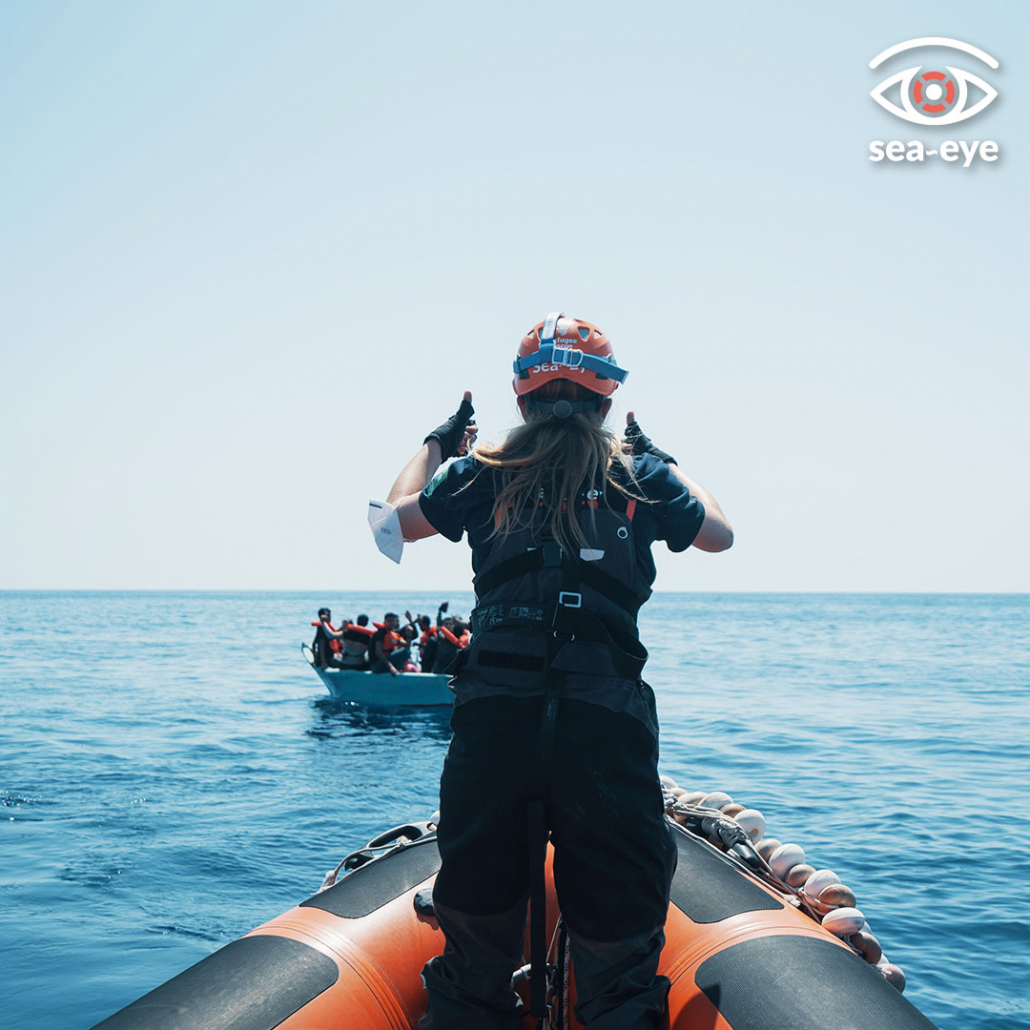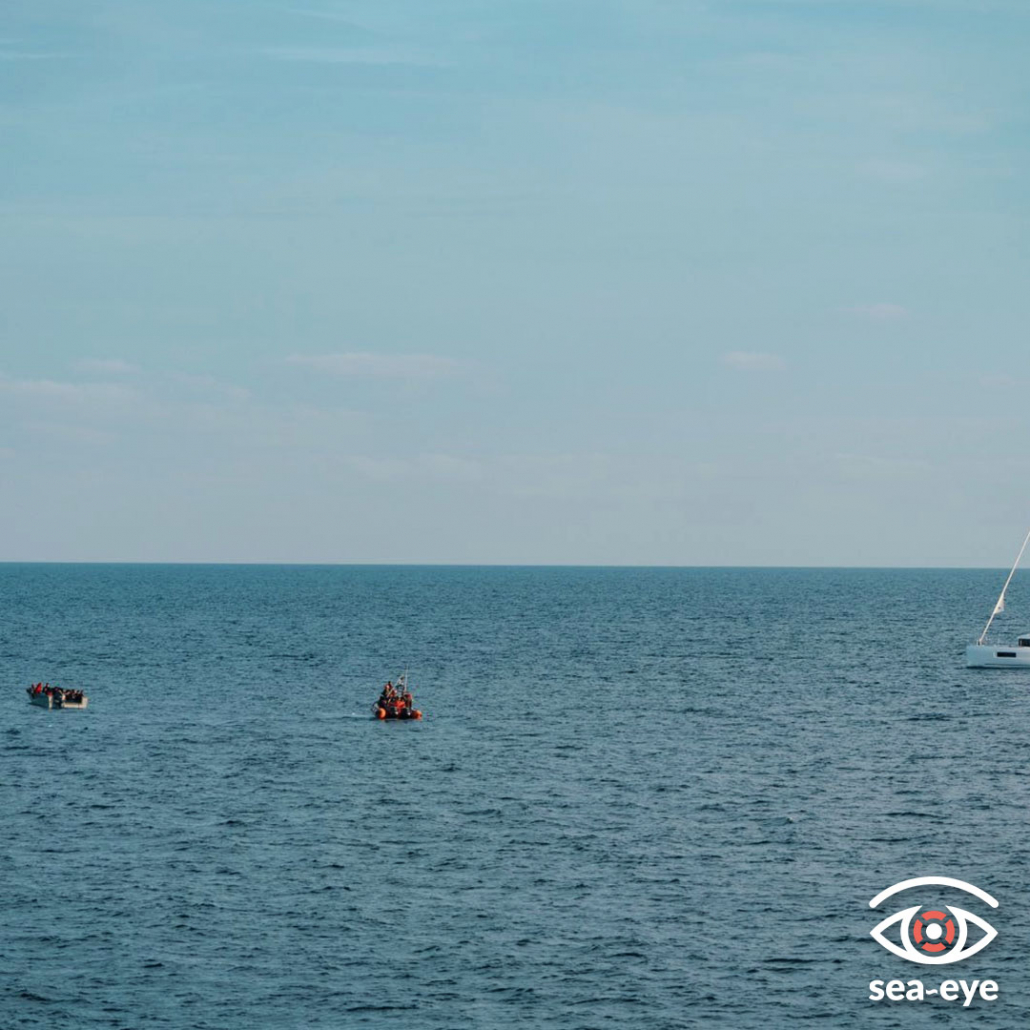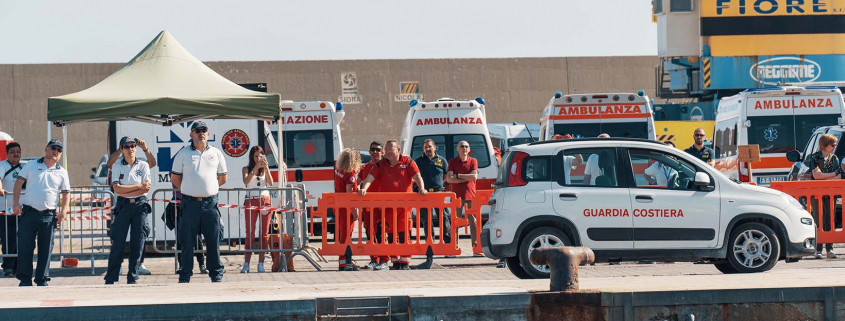SEA-EYE 4 detained in Ortona after rescue operations
Italian coast guard punishes SEA-EYE 4 with 20 days administrative detention for saving 32 lives
On Friday evening, the Italian Coast Guard told the Italian press that the German rescue ships SEA-EYE 4 and MARE*GO have been detained for 20 days. Shortly after, Sea-Eye was also informed, with a reference to a new Italian law of Feb. 24, 2023, that the SEA-EYE 4 will be detained for 20 days in Ortona for saving 32 lives in a rescue operation.
According to the Italian Coast Guard, the reason for the detention is that after rescuing 17 people in the Libyan search and rescue zone, the vessel rescued 32 more people in the Maltese search and rescue zone and did not approach the port of Ortona as soon as possible. The SEA-EYE 4 stopped its approach to Ortona on Tuesday evening and turned around because there was a distress call from a boat with more than 400 people in the Maltese search and rescue zone. The boat was eventually spotted by the civilian search aircraft SEABIRD. The operator organization Sea-Watch reported it on Twitter. Since no state actor confirmed the coordination of the maritime emergency and Malta has not coordinated maritime emergencies of people seeking protection in the Maltese search and rescue zone for many months, the additional rescue mission for Sea-Eye was without alternative.

While searching for the 400 people, the SEA-EYE 4 received a distress call from a sailboat that had discovered 32 people on an unseaworthy boat. The Sea-Eye rescue vessel then brought the people on board to safety.
On Wednesday night, the SEA-EYE 4 continued to search for the 400 people, who finally reached the Italian search and rescue zone under their own power. They were rescued by the Italian Coast Guard only shortly before reaching Sicily.
“It is therefore wrong for the Italian Coast Guard to claim that a patrol boat was already on its way. The people first had to reach the Italian search and rescue zone under their own power in order to receive help there. To punish us now for complying with international laws is justified solely on the basis of the new Italian law, which serves to quickly remove civilian rescue ships from the area of operation and to let them call at far-away ports in order to reduce the arrivals of people seeking protection as much as possible,” says Gorden Isler, chairman of Sea-Eye e.V.

The detention of the SEA-EYE 4 now prevents another rescue mission of the ship, although the current year is deadlier and more dangerous for people seeking protection than the previous five years.
“Italy’s new strategy is perfidious and transparent. The long journeys to assigned, distant ports will always mean that we have to decide on the way there whether to respond to more incoming distress calls. Of course we do, and this then leads to accusations that we are breaking Italian laws. Even though these laws are only a few months old, this creates the public impression that our action is illegal. It is another reprehensible attempt to criminalize sea rescue and flight itself in order to justify ever more brutal state action,” Isler continues.



